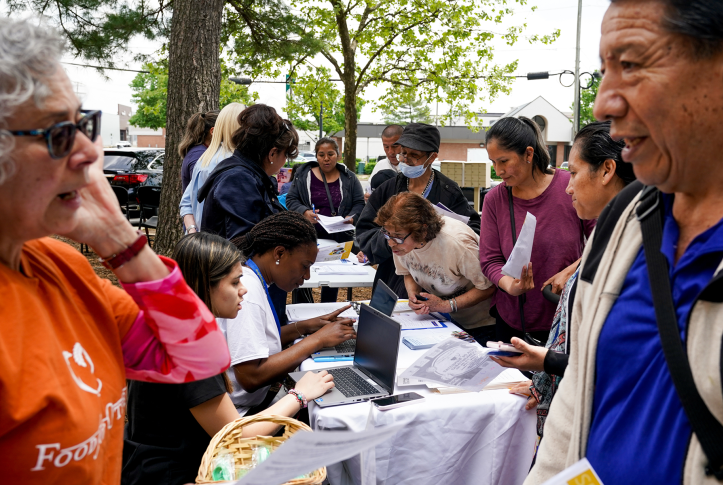Brokers are licensed insurance professionals who enroll consumers into health, life, auto, and other insurance products. Currently, every nonwhite racial group is underrepresented in the broker industry. For example, despite comprising 13.5 percent of the U.S. population, Black individuals account for only 9.3 percent of all brokers. Additionally, the existing broker population does not sufficiently extend services to communities of color. According to a 2022 survey, nearly half of health insurance brokers self-reported that their client base comprised 5 percent or fewer Black clients, while 70 percent and 43 percent had a client base with 5 percent or fewer Asian and Hispanic clients, respectively. Two-thirds of brokers reported having zero American Indian or Native American clients; 93 percent reported that their client base comprised 5 percent or fewer American Indian or Native American clients.
The composition of the broker community and the clients they serve can be partly attributed to the history of racial discrimination and exclusion in the insurance industry. Discrimination impeded the ability of Black Americans to obtain insurance, including health insurance. When plans were offered to Black households, insurers employed “scientific” racism to justify higher premiums.
This legacy of structural racism and implicit bias likely continues to contribute to the persistent racial biases experienced by Black insurance professionals today. Survey responses from more than 300 Black insurance professionals identified racial bias as one of the main barriers for pursuing and maintaining a career in insurance, along with a lack of mentors, promotions, and career opportunities.
Using Broker Academies to Increase Diversity and Improve Coverage Rates
In December 2021, Connecticut’s state-based marketplace, Access Health CT, created an innovative broker training and mentorship program to provide individuals from historically underserved communities the skills and tools to become health and life insurance brokers. The grant-funded “Broker Academy” covers the costs of students’ classes, fees, and supplies and provides five months of mentorship. The program aims to create a new pathway to insurance licensure. It aspires to establish a more diverse and trusted broker industry, provide individuals with at least a high-school-level education access to a stable and profitable career, and help increase insurance coverage rates in underserved communities.
By many metrics, the first year was a success. The program succeeded in attracting racially diverse students, and the program has fulfilled its primary goal of producing licensed insurance brokers. As of September 2022, 30 students passed the state licensing exam; these newly certified brokers assisted consumers during 2023 open enrollment. Connecticut approved the Broker Academy for a second year with modifications, including more class days, an extended mentorship program, and requiring brokers receive Access Health CT certification.
Following Connecticut’s lead, Washington’s marketplace plans to create its own Broker Academy. The plan involves providing free broker licensing classes and mentorship to individuals from seven Washington counties with the highest uninsured rate statewide (8% or higher). The marketplace aims to launch the program in 2024.
Engaging Existing Brokers to Address the Historical Lack of Broker Outreach
Additional states are engaging brokers to address the historical lack of broker outreach in marginalized communities:
- The Idaho marketplace is awarding up to $3,000 in matching funds to brokers who create innovative marketing strategies to promote the marketplace in Hispanic and other underserved communities during 2024 open enrollment.
- Pennsylvania’s marketplace introduced a pilot “Broker Recruitment and Diversification” program that aims to enlist established brokers to serve historically marginalized communities within Philadelphia County. Pennsylvania has implemented mandatory diversity, equity, and inclusion modules as part of its broker certification process.
- The Colorado marketplace’s annual “CoverCO” conference for navigators, brokers, and other enrollment assisters educates these professionals about structural barriers to health equity.
Looking Forward
The end of the public health emergency and the unwinding of Medicaid continuous coverage will disproportionately impact Black Americans and people of color. States and marketplaces will need to ensure that the millions of Americans leaving Medicaid maintain comprehensive health insurance coverage. Broker academies and similar programs can assist in health insurance enrollment during this transitional period. Going forward, states working to tackle racial discrimination in the insurance sector may collaborate with advocacy groups to increase awareness among students of color regarding financial career prospects and provide support through mentorship programs for new professionals. These initiatives mark first strides in addressing racial discrimination within the industry.





